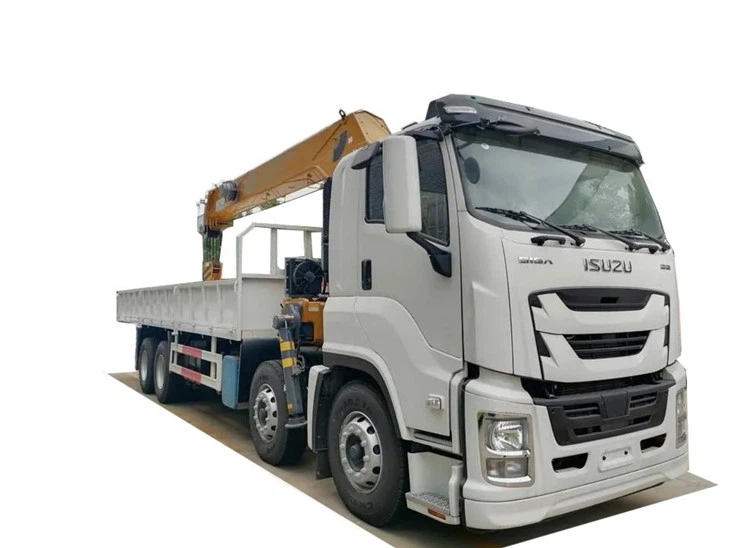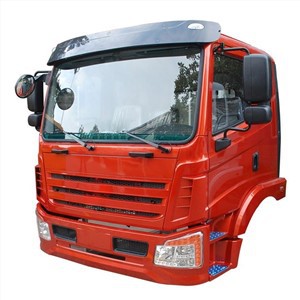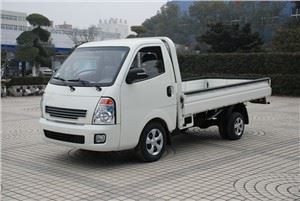Understanding Roll On Roll Off Trucks: A Comprehensive Guide

Introduction
Roll on roll off (RoRo) trucks are specialized vehicles designed to transport cargo efficiently and safely. Utilizing a simple loading mechanism, these trucks allow goods to be driven on and off with ease, making them a popular choice for various industries. This article delves into every aspect of RoRo trucks, exploring their functionality, benefits, and applications while providing practical examples and tips for effective use.
What is a Roll On Roll Off Truck?
A roll on roll off truck is a type of transport vehicle that enables the loading and unloading of cargo by rolling it on and off the truck bed. This is achieved using a built-in ramp that allows vehicles, machinery, or freight to be driven into the truck’s compartment without needing a crane or other unloading equipment.
Key Features of RoRo Trucks
- Ramp Mechanism: A crucial feature that facilitates easy loading and unloading.
- Versatile Cargo Space: Designed to accommodate different types of goods, including vehicles and heavy machinery.
- Structural Integrity: Built to handle heavy loads without compromising stability.
Applications of Roll On Roll Off Trucks
RoRo trucks are utilized in a wide array of industries. Below are some of the most common applications:
1. Automotive Transport
RoRo trucks are widely used to transport vehicles from manufacturers to dealerships. For instance, a car manufacturer may load several vehicles onto a RoRo truck for delivery across the country.
2. Heavy Machinery and Equipment
Construction companies often use RoRo trucks to transport heavy machinery like bulldozers and excavators to job sites efficiently. The ability to roll on and off allows for quick setup times.
3. Shipping and Freight Transport
RoRo trucks are instrumental in maritime transfer scenarios, where they may load and unload cargo directly onto ships equipped for RoRo operations.
4. Emergency Services
In disaster relief efforts, RoRo trucks are used to transport essential supplies and vehicles quickly to affected areas, taking advantage of the rapid loading and unloading capabilities.
Advantages of Using Roll On Roll Off Trucks
Choosing RoRo trucks for various applications comes with significant advantages:
1. Efficiency
Time is saved with the non-reliant loading process, leading to reduced transportation costs. For example, a logistics company can deliver goods faster because of the streamlined loading process.
2. Safety
Since loading and unloading occur at ground level, the risk associated with using cranes is eliminated, ensuring a safer working environment.
3. Versatility
These trucks can handle diverse types of cargo, making them a flexible solution for transportation needs.
4. Reduced Damage
RoRo trucks minimize the risk of cargo damage during the loading and unloading process, as there are fewer mechanical handling steps involved.
How to Choose the Right Roll On Roll Off Truck
Selecting the appropriate RoRo truck involves several considerations:

1. Cargo Size and Weight
Evaluate the dimensions and weight of the goods you need to transport. Ensure the chosen truck can accommodate your cargo without exceeding weight limits.
2. Ramp Specifications
Check the ramp’s grade and width, as these factors affect how easily the load can be maneuvered onto the truck.

3. Truck Configuration
Select a configuration that aligns with your business needs, such as the number of axles and cargo space design.
4. Regulatory Compliance
Ensure the truck meets local and international transportation regulations, especially for freight that crosses borders.
Practical Tips for Using Roll On Roll Off Trucks
To maximize the benefits of RoRo trucks, consider the following tips:
1. Regular Maintenance
Schedule regular maintenance checks to ensure the truck’s ramp and structural elements are in perfect working condition.
2. Proper Training for Operators
Ensure that all operators are trained to handle the truck and its unique loading mechanisms to avoid accidents.
3. Load Distribution
Distribute the load evenly across the truck bed to enhance stability during transit. This is crucial for maintaining safety on the road.
4. Secure the Cargo
Always secure the cargo properly using straps or chains to prevent any movement during transportation.
Cost Considerations
When evaluating the costs associated with RoRo trucks, you should consider the following:
1. Purchase Price vs. Leasing Options
| Aspect | Purchase | Lease |
|---|---|---|
| Initial Payment | High | Low |
| Long-term Cost | Potentially lower | Higher over time |
| Flexibility | Low | High |
2. Insurance
Ensure you have adequate insurance coverage for your RoRo truck, as this will help protect against potential losses.
3. Maintenance Costs

Factor in ongoing maintenance costs, which are vital for keeping the truck operating efficiently.
Environmental Considerations
With increasing environmental regulations, managing emissions and fuel consumption is more critical than ever:
1. Fuel Efficiency
Choose RoRo trucks with improved fuel efficiency to reduce operational costs and environmental impact.
2. Alternative Fuel Options
Consider trucks that use alternative fuels or electric options, which can significantly decrease the carbon footprint.
3. Regular Emission Checks
Conduct regular emission checks to ensure compliance with environmental regulations and minimize pollution.
Future Trends in RoRo Trucking
The logistics and transportation industry is always evolving. Here are some future trends to watch for:
1. Technological Advancements
With the integration of IoT and AI, RoRo trucks will likely become smarter, with better route optimization and real-time tracking capabilities.
2. Telematics Integration
Telematics systems will play a vital role in monitoring truck performance, enhancing efficiency, and reducing costs.
3. Sustainability Efforts
As environmental concerns grow, companies will increasingly adopt sustainable practices in their RoRo operations, from energy-efficient vehicles to eco-friendly loading techniques.
FAQs about Roll On Roll Off Trucks
1. What are the main benefits of using a RoRo truck?
The main benefits include efficiency in loading/unloading, safety due to ground-level access, versatility for different cargo types, and reduced risks of damage during transport.
2. Are RoRo trucks suitable for transporting all types of vehicles?
Yes, RoRo trucks can transport various vehicles, including cars, trucks, and heavy machinery, as long as they fit within the specified size and weight limits.
3. How do you ensure the safety of cargo during transit?
To ensure safety, always secure cargo with appropriate straps or chains, maintain proper load distribution, and regularly inspect the truck’s condition.
4. What maintenance is required for RoRo trucks?
Regular maintenance includes checking the ramp mechanism, brakes, tires, and overall structural integrity to ensure safe operation.
5. Can RoRo trucks be used in emergencies?
Yes, RoRo trucks are often used in emergency situations to quickly transport vehicles and supplies to disaster-struck areas.
6. What are the cost-saving measures associated with RoRo trucking?
Cost-saving measures include investing in fuel-efficient vehicles, performing regular maintenance to minimize repairs, and optimizing routes for quicker deliveries.
